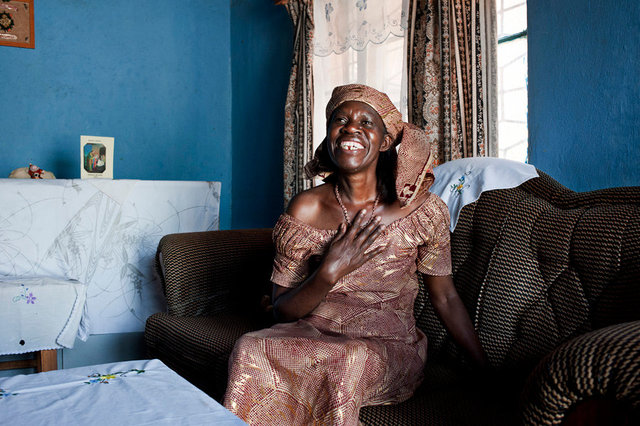
Godelieve Mukasarasi
"In Paul Klee's Angelus Novus the angel's eyes are wide open, his mouth is open, his wings are spread. He looks as though he is about to move away from something he is fixedly contemplating. His face is turned towards the past. He sees catastrophe, wanting to awaken the dead and make whole what has been smashed." Godelieve Mukasarasi is the angel caught in the past, but pushed towards the future. In place of wings she has long tapering fingers; her gestures are decisive, harmonious, frequently touching her heart, her beautiful hand is open. She often looks up to the sky, a habit accompanied by a smile which overwhelms the person who is looking at her; her cheeks become more rounded, her high cheekbones less pronounced. She makes whole what has been smashed. She heals the wounds of the soul. Reconciling with life Godelieve. She lights up, she listens to women who have been contaminated by horror, contaminated by men who destroy, by AIDS, and by ignorance, the font of all hatred and disgust. She holds out her tapered fingers and moves towards the future.
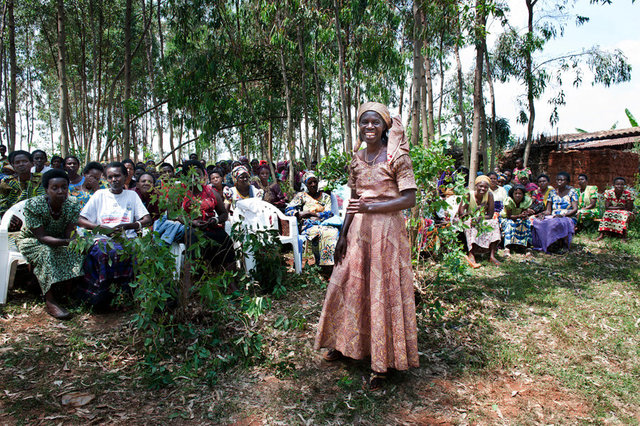
Urunana
Godelieve Mukasarasi is leading the Uranana, one monthly meeting for Sevota's women to be all together and talking about their issues, dancing and singing. There are many SEVOTA women and they operate in small autonomous groups, sharing their experiences of being survivors and having suffered unspeakable violence. Together they are free to talk about themselves, to talk about what happened without shame. Social psychotherapy, individual and group sessions, a course of active participation accomplished together to counter post-traumatic stress disorder and encourage self-esteem and social reintegration.
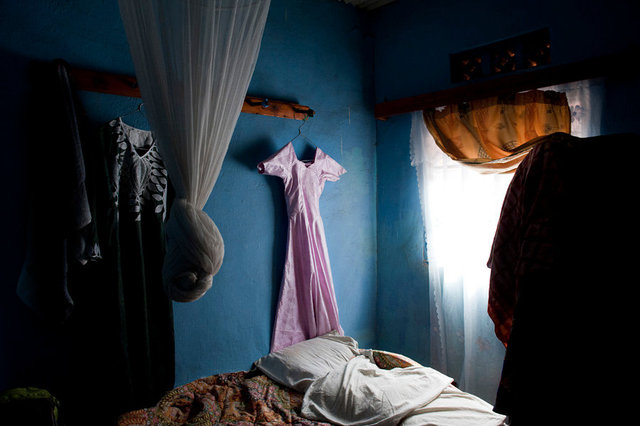
the pink dress
There is a pink dress hanging in Godlieve's bedroom. I would like to see her wear it; it is the colour that girls are destined to wear, what sets us apart from boys. It is the colour of women. In Rwanda it is also the colour of the prison uniforms of those accused of genocide who are awaiting trial.
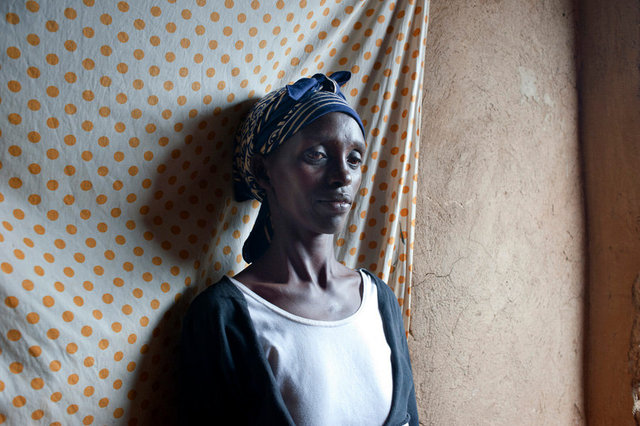
Anastasia
Forgiving does not mean forgetting. The women who survived have forgiven because "only by forgiving can you be forgiven."
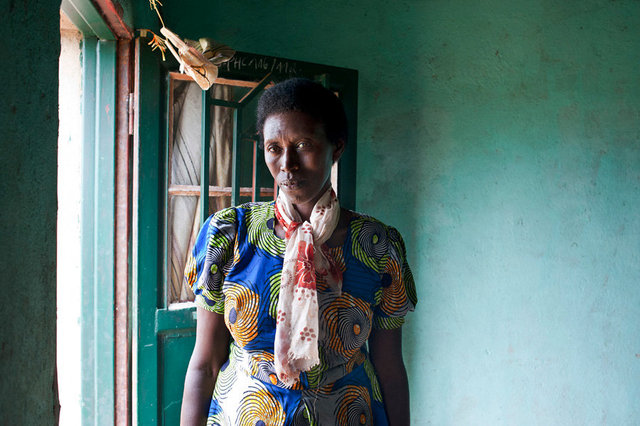
Victoire
In 1996 rape was declared a first-degree crime in the Rwandan organic law classification of acts committed during the genocide. It was recognized by the United Nations in the statute of the International Criminal Tribunal for Rwanda as a war crime, a crime of genocide and a crime against humanity. The Tribunal adopted the definition of rape in 1998 on the basis of evidence of the women of SEVOTA
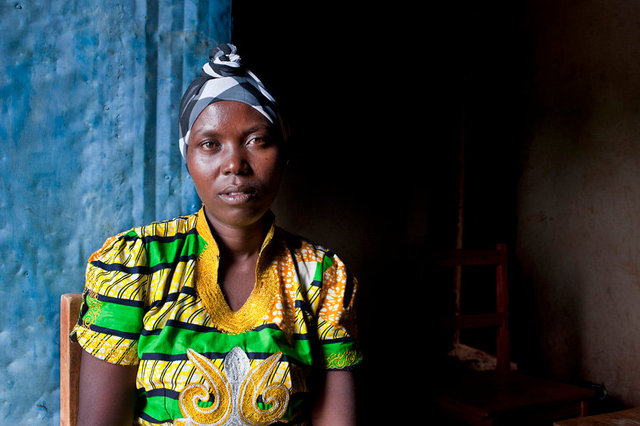
Vestine
In the interests of a civil society, the Rwandan government has adopted important laws aimed at safeguarding the rights of women and encouraging their empowerment. The approval of new inheritance laws in 1999 was groundbreaking; before that women were completely excluded.
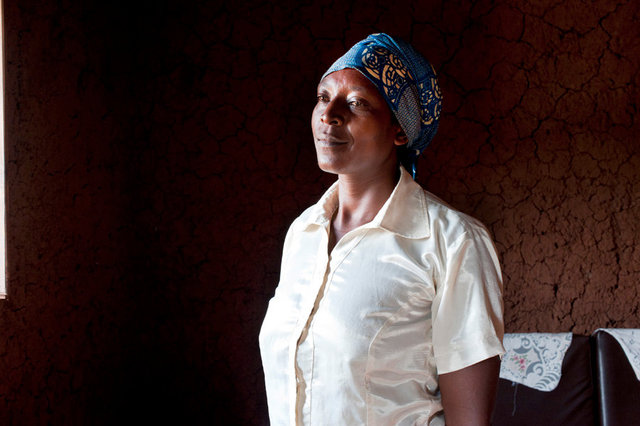
Concessa
Concessa has the most beautiful voice; she sings even when she is alone at home or tending to her cow. Her children are dead and so are her brothers. Everyone. It seems that her face does not want to reveal the past. Her gaze is lost in the space framed by a small window. A small window through which she dreams of the future. The future: the government of Rwanda is committed to Vision 2020, whose main aim is to transform Rwanda into a middle-income economy which would require an annual growth rate of at least 7%.
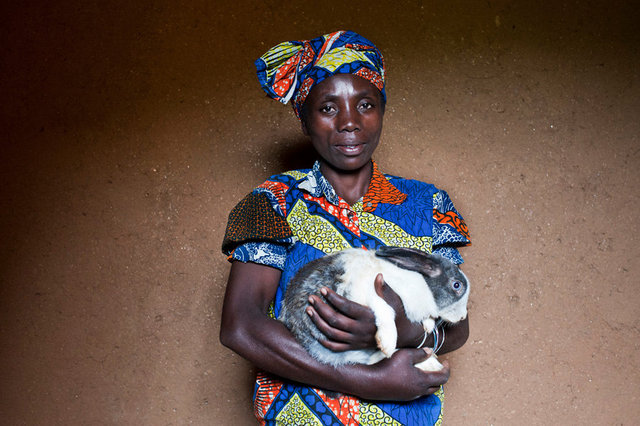
Agnes
In the interests of a civil society, the Rwandan government has adopted important laws aimed at safeguarding the rights of women and encouraging their empowerment. The approval of new inheritance laws in 1999 was groundbreaking; before that women were completely excluded.
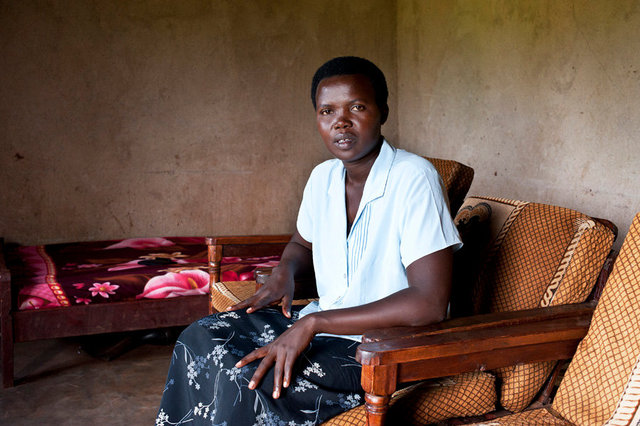
Assunciata
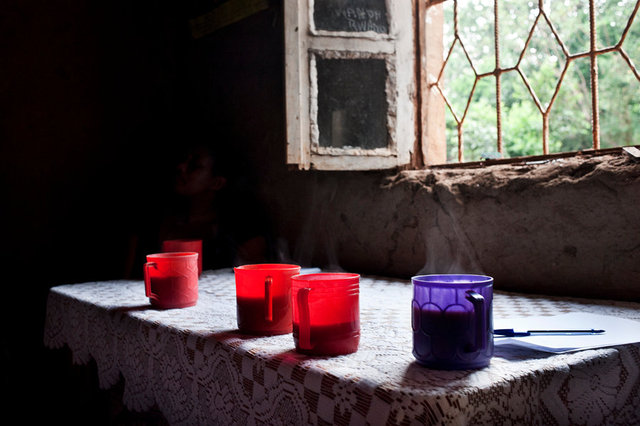
Meeting of a small group of Sevota women
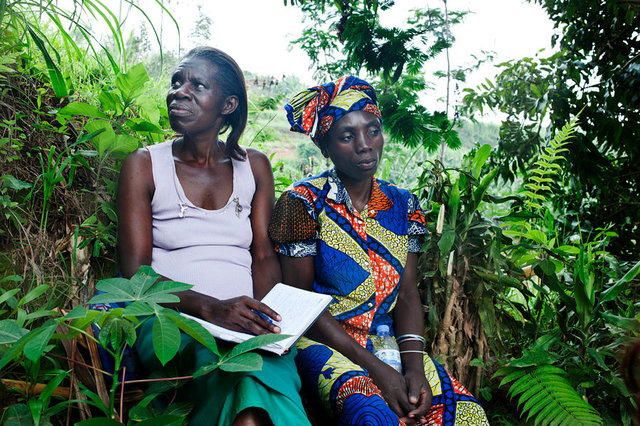
Godelieve and Agnes
“April is approaching. In my body I feel my aching wounds; the scars seem fresh and have never healed. Although there are two months to go I already feel the rain falling, its sound, its smell." It was also raining that April of twenty years ago when the Genocide of the Tutsis started. That is what the United Nations has decreed it will be called from now on.
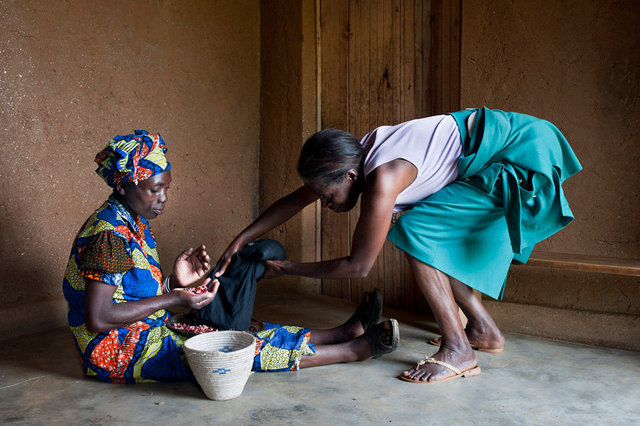
Godelieve and Agnes
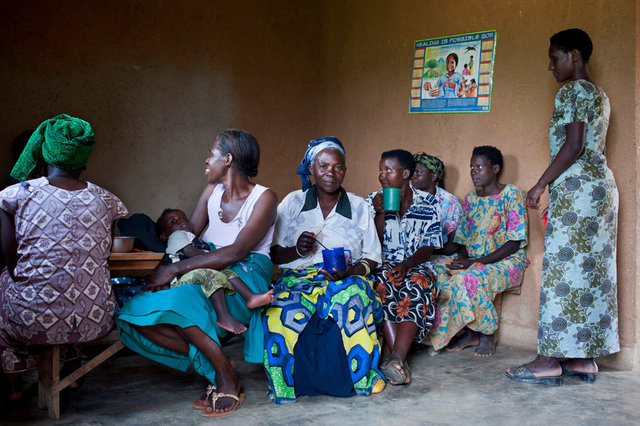
Small group of Sevota women and Godelieve
There is certainly no competition about who has suffered the most; women who were buried alive or lost three children feel they have no greater right to call themselves victims than those who were "only" orphaned. The SEVOTA women help each other; if one falls ill and can no longer work in the fields there is another who will take her place that day. Cooperation.
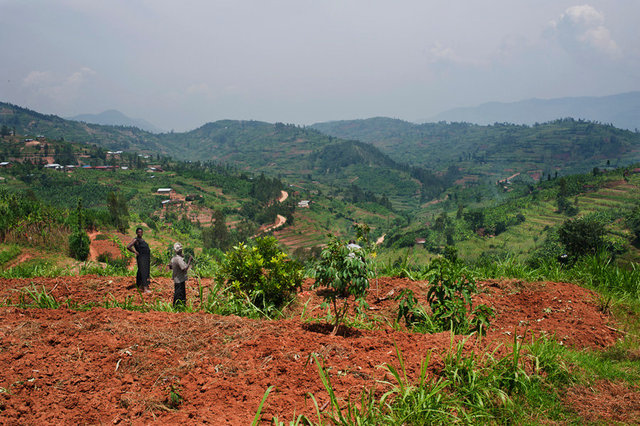
Ngororero, Rwanda
Agriculture is crucial to Rwanda and is the country's main source of income. Most who work the land are women: they are barefoot, the red living earth comes up to their ankles, their backs bent over in work that drives away the thought and the memories of death
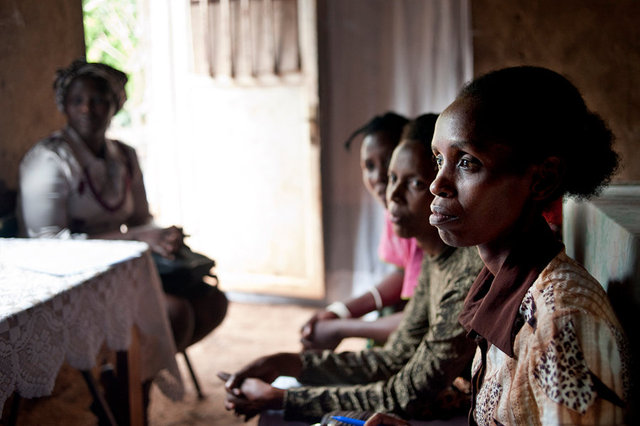
Meeting of a small group of Sevota women
Together they are free to talk about themselves, to talk about what happened without shame. Social psychotherapy, individual and group sessions, a course of active participation accomplished together to counter post-traumatic stress disorder and encourage self-esteem and social reintegration.
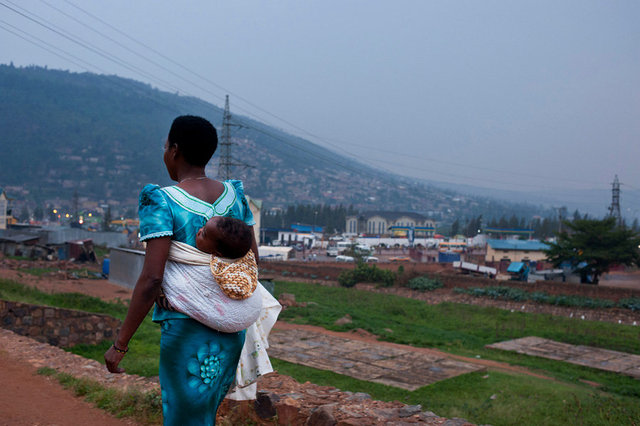
Kimisagara, Kigali
Kimisagara is the most densely populated, disadvantaged area in central Kigali
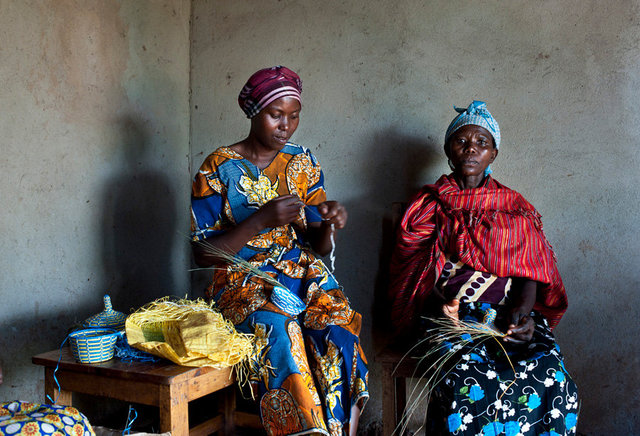
Vestine and Farida
Farida is the best at weaving baskets, when they meet on Tuesdays to work at Vestine's house she is the one who checks the work of the others and adjusts any small mistakes; the others watch her and learn. Sharing. While they work they chat about work, their daily lives, their children and, in some cases, the effort they have made to accept them. It is not easy to love a child fathered by a man who raped you and perhaps killed your husband. They laugh; gossip among women knows no boundaries.
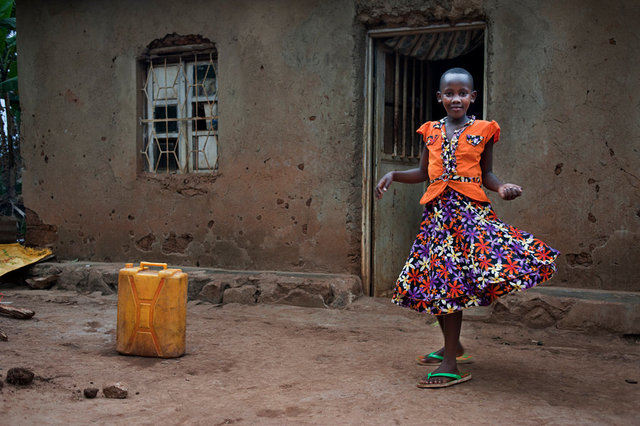
daughter of a Sevota woman
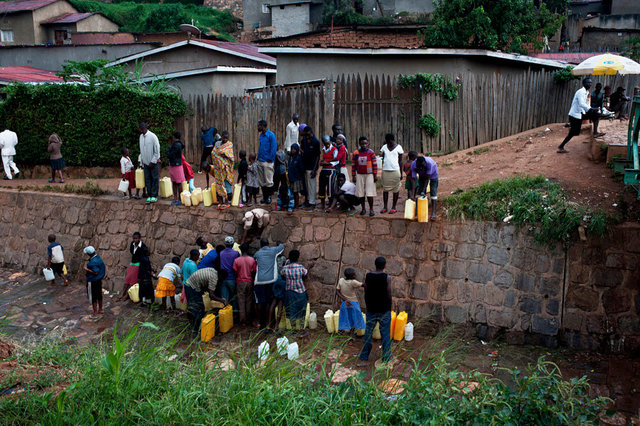
Kimisagara, Kigali
Kimisagara is the most densely populated, disadvantaged area in central Kigali
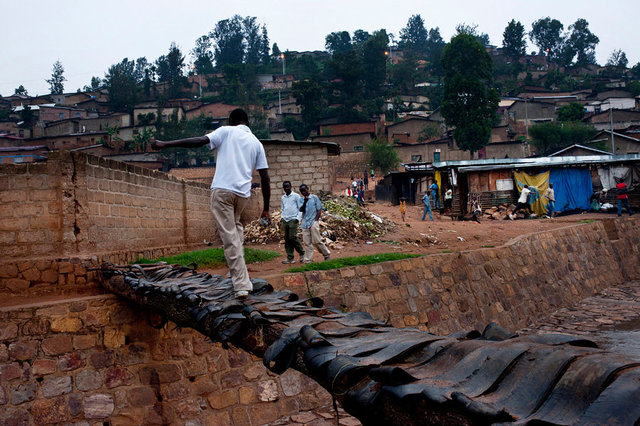
Kimisagara, Kigali
Kimisagara is the most densely populated, disadvantaged area in central Kigali
